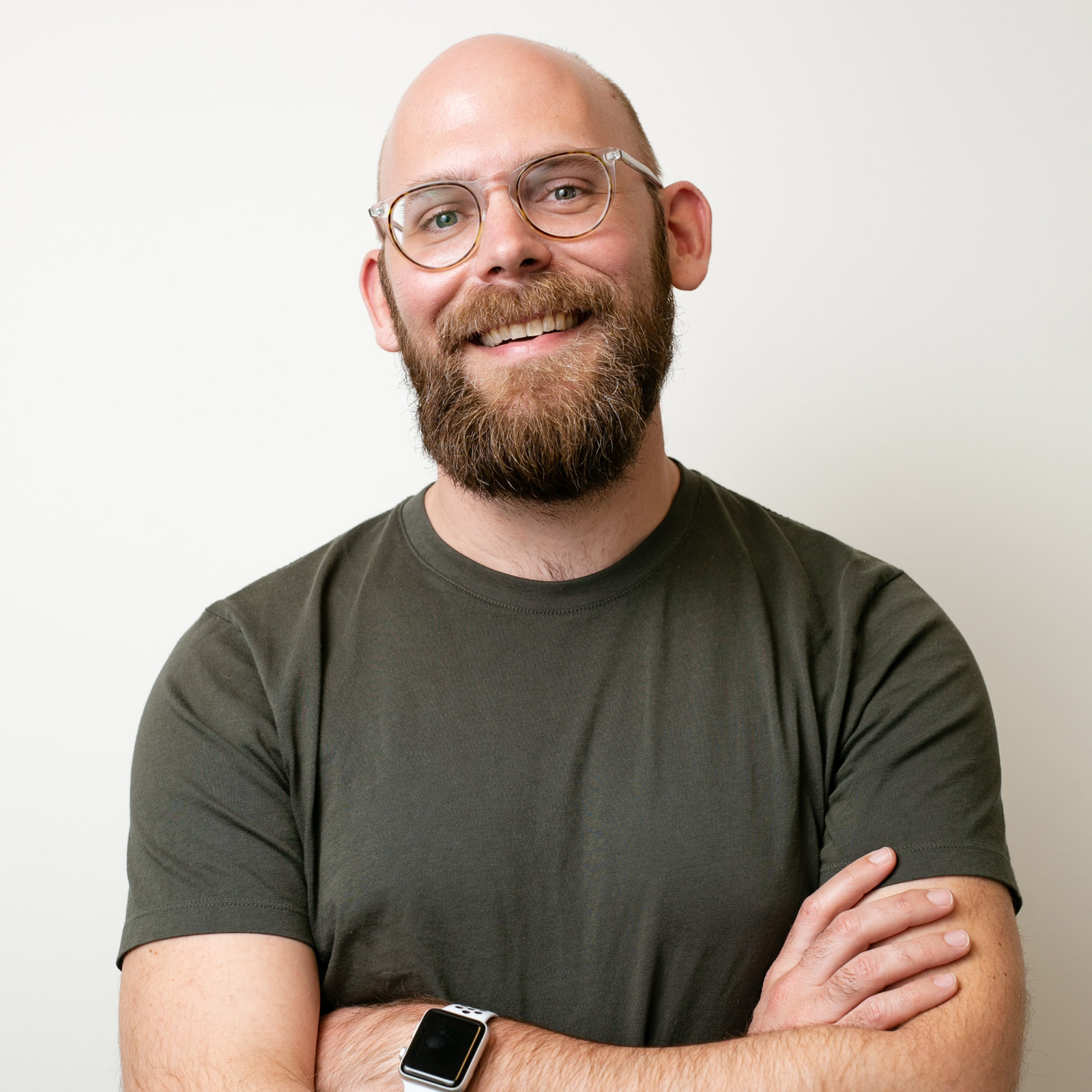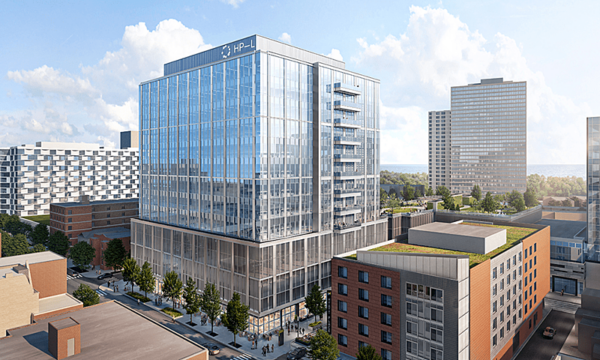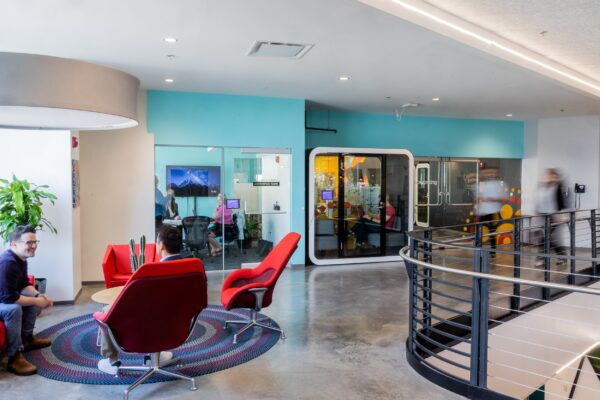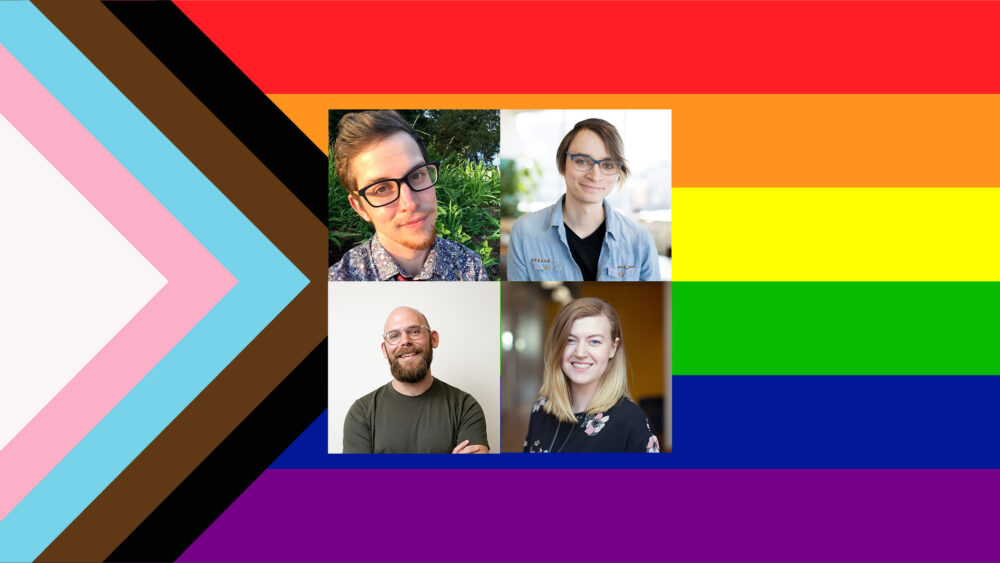CIC strives to create an environment where everyone is welcome. We owe our success to the diverse group of employees and community members who make the space what it is. In honor of pride month, we asked some of our queer team members about their experience in the workplace and their thoughts on Stonewall’s 50th anniversary. We’re proud to share their responses.
What does CIC do to create a culture of inclusion?

Skylar Kergil (he/him):
As a transgender person, I am grateful for our gender inclusive bathrooms, gender inclusive wording for rooms like the Nursing room, and overall, how CIC embraces terms like “partner” which helps foster acceptance rather than assumptions. I recall asking my boss for permission to wear my “This is what Trans looks like” shirt on transgender day of visibility … and her reply being “Absolutely! At CIC, that shouldn’t even have to be a question.”

Leona Dougherty (she/her):
CIC has been the most queer friendly environment I’ve had the pleasure to work in. As a trans person who has mostly worked in environments that were unequipped at best and outright hostile at worst, CIC has noticeable policy in place to give the appearance of trans friendliness, and makes efforts to provide substantive space-improvements to its trans clients, which gives me comfort as a trans employee.

Jason Connell (he/him):
As the organization keeps growing, I value the fact that CIC not only allows, but sees value and worth in me being my true self. Part of our jobs as community team members is to help add to, or even create the workplace culture for the companies that call CIC home, and it feels good to have that influence. I’ve gotten positive feedback from companies in the space about the inclusion of preferred pronouns in our email signatures, absence of dress code, gender inclusive restroom signage, and more, and have even seen some of them incorporate that into their workplace norms. We have the power to model an inclusive workplace for our clients, so it’s encouraging to see us always striving to improve.

ALexa Benson (she/her):
The work we do at CIC creates really strong relationships between coworkers, and I feel totally at ease here. This is the first workplace where I’ve been comfortable enough to be open about being queer.
What does Stonewall mean to you?
Skylar:
Stonewall helped kick off the expansion of LGBTQ+ rights in a completely unprecedented way. Led mainly by drag queens and transgender women of color, the Stonewall riot defined the future of LGBTQ+ pride. Understanding the history of Stonewall is important, as transgender women of color continue to be murdered at some of the highest rates in this country and worldwide. When I think of Stonewall, I appreciate the many brave LGBTQ+ folks who spoke up, stood up, and helped us get us to where we are now – and I feel empowered to continue the fight for inclusivity worldwide.
Leona:
The stonewall riots occurred because queer people were effectively criminalized to the fringes of society, and had to resort to mafia-run bars in order to congregate. 50 years later – and 30 years since the Reagan administration’s complicity in the deaths of gay people during the AIDS crisis – we as queer people are surrounded by rainbow branding once a year. Meanwhile less than half of the states in the United States have discrimination protections for LGBT people. In the UK, transgender hate crimes have increased by 81% over last year. Brazil continues to be one of the most dangerous places for LGBT people, with hundreds of people killed each year. And back to the US, nearly half of queer people who come into contact with the police experience harassment and misconduct.
So for what strides have been made since Stonewall, movements and governments around the world continue to be hostile toward queer people. Pride is commonly seen as a celebration, and for many it is – it’s an opportunity for gays to take a day off work or school, hang out and drink, wear cute outfits, and be their biggest selves – but the importance of pride is a demonstration of queer culture in public. It is meaningful expressly because queer people still face violence and oppression.
Jason:
To me, Stonewall represents the power that we have in community. It took a concentration of marginalized queer folks of color to feel strong enough to do what was necessary and fight back. As queer people, we often have to build a chosen family of people we know will support us and fight for us, in good times and bad.
ALexa
I was in Florence, Italy when the Supreme Court ruled in favor of same-sex marriage in Obergefelle v. Hodges. From my window I could hear the American students at the bar down the street celebrating. Someone lit fireworks left over from Florence’s Saint Day. I felt overwhelmed — with sadness, being so far from home at such a special moment; with relief, to be free from one of the remaining legal discriminations against my community. Four years almost to the day from then, we celebrate the 50th anniversary of the protests at the Stonewall Inn.
The Stonewall Inn welcomed the members of the LGBTQ+ community who were least able to conform to straight norms — trans people, gender non-conforming people, drag queens — and was frequently raided by police. On June 28, 1969, one of these raids started a revolution in the LGBTQ+ community.
This Stonewall anniversary reminds me that our community is not a monolith — it is inclusive of a broad range of genders, sexualities, and identities, which can’t be distilled into one voice. We are a community but not a singularity. There is infinite diversity among us and I am proud to see new voices gaining strength.
Related

CIC Now Accepting Entries for New Massachusetts Social Impact Cohort

The University of Chicago Selects CIC to Operate Shared Lab & Office Space at Hyde Park Labs

Approaching DEIB work from a healing-first perspective

